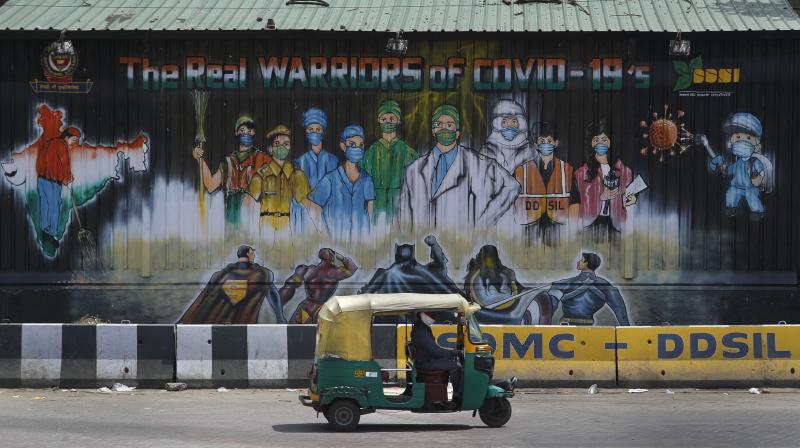AA Edit | Only long term measures can resuscitate the economy
The Covid-19 pandemic has finally taken the Indian economy to a journey of the netherworld

Little over four years ago, then International Monetary Fund managing director Christine Lagarde billed India as a bright spot in the gloomy global economy. Notwithstanding the fact that the Indian economy shone majorly because of cheaper crude oil, all of us felt euphoric.
Hearts swelled with pride and a sense of reinvention. Within the next year, Prime Minister Narendra Modi launched his googlies, demonetisation and the Goods and Services Tax. Instead of launching the economy into a geostationary orbit of the global economy, the government’s twin mistakes sent it into a free fall.
The Covid-19 pandemic has finally taken the Indian economy to a journey of the netherworld. The government finally admitted that the economy had shrunk 23.4 per cent in the quarter ended on June 30 — the worst performing economy among the top 50 countries.
Does it mean an end to the economic growth story of India? Definitely not! The people of this country are smart enough to set right things.
However, the journey of the Indian economy over the last four years — from being the bright spot in the global economy to the worst performer among 50 countries — gives a vivid commentary on the economic policy of the central government. The economic crisis during the UPA-2 government was attributed to policy paralysis.
And if one were to pick one phrase to describe the economic failure under the current regime, it would be “impulsive policy”.
Be it demonetisation or the rollout of the GST or lockdown, the government went after headline-grabbing policies without adequate preparedness to handle the consequences of those decisions. The result is a big mess-up.
The lockdown was not per se a wrong decision. Several countries have effectively implemented the lockdown to control the coronavirus pandemic.
But implementing blindly what other foreign countries did without taking into consideration the uniqueness of India was wrong. Perhaps, top officials might not know that the majority of Indian families have hand-to-mouth existence.
One wonders how the ministers, who grew up in middle-class backgrounds, could have forgotten this stark reality of India. How did the ministers expect that crores of such people remain locked in without money and food? Had the government transferred some cash to all families, the lockdown could have been successful.
But the Narendra Modi government dithered in taking this step. With state elections on the horizon, the government did not stop guest workers from returning home. This fatal error helped the coronavirus spread to smaller towns and rural India, making containment of the pandemic much more difficult and potentially pushing lakhs of people into poverty.
With large swathes of the economy, involving businesses such as hospitality, events, weddings, tourism, entertainment, travel in a virtual coma, the Gross Domestic Production (GDP) or the size of the economy cannot be expected to reach pre-Covid levels immediately.
There is nothing that the government can do in the short term to resuscitate the economy. Two things that the government could do are: Not deploying smokescreens to make everything look hunky-dory, and adopting a transparent and consultative approach in framing the economic policy.
